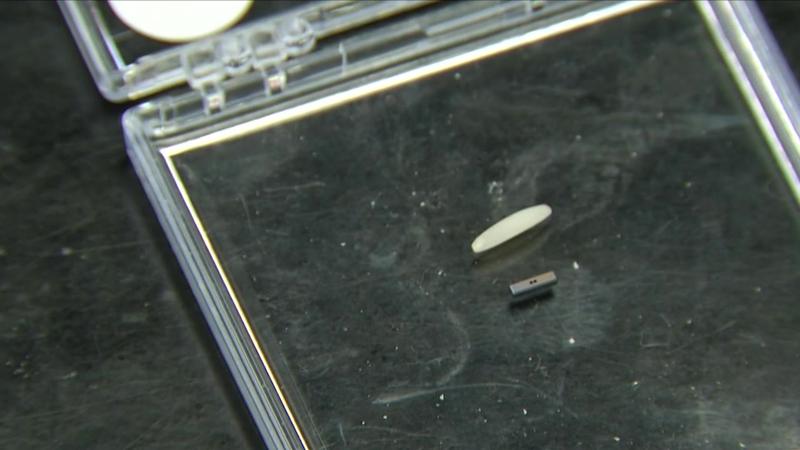UR Medicine sensor—smaller than grain of rice can detect COVID immunity
[anvplayer video=”5099169″ station=”998131″]
ROCHESTER, N.Y. (WHEC) — What can you do with technology smaller than a grain of rice? At UR Medicine, you can detect whether you’re immune to COVID and the flu.
The sensor is metallic, rectangular and smaller than a grain of rice and yet that device can determine your immunity to COVID-19 and other viruses like the flu.
What can you do with technology smaller than a grain of rice?
— Berkeley Brean (@whec_bbrean) March 28, 2022
At UR Medicine, you can detect whether you’re immune to COVID-19 and the flu. The story and the test are next on @news10nbc 6:15. pic.twitter.com/bMbI7UnwJd
"Let’s say I was vaccinated a year ago. Do I still have antibodies to COVID-19? That’s something we can determine very quickly," Prof. Ben Miller said.
Miller is a professor of dermatology at UR Medicine.
Here’s how it works.
- Miller places the sensor on a plate.
- A drop of solution is added to the plate. It slowly drains toward the sensor which would contain a person’s blood or saliva sample and in a short period of time the device records a person’s immunity.
"So the goal is to respond very quickly to when a new variant arises," Miller said. "So we can understand whether somebody’s pre-existing immunity is going to help them against that variant."
The technology isn’t ready to hit the market yet. UR Medicine just needs money to develop the sensor so that it can be inexpensive and easy to use.

[News10NBC]
Where did this technology come from?
It was the work of AIM Photonics. That’s the much-maligned research outfit that Joe Biden toured when he was vice president. In 2015, Biden said AIM Photonics was going to be about resurgence.
"We are an instant gratification society and sometimes it just takes a while for things to come to fruition," Miller said.
This work started long before we heard of COVID.
UR Medicine says it thinks this device will be able to detect the severity of an illness. And they think everything—from the sensor to the testing kit—will fit inside a shoebox.
They think it will be in clinics in two years.